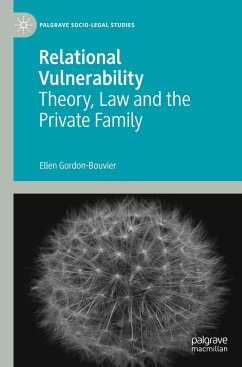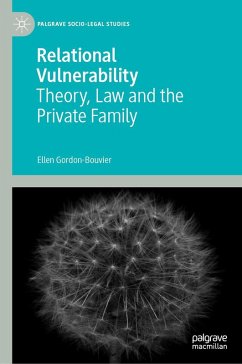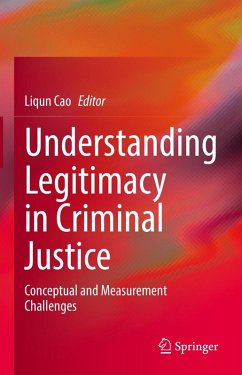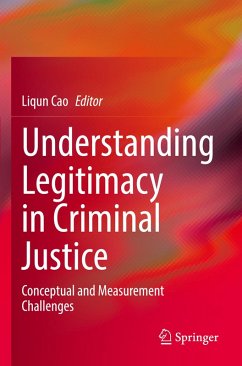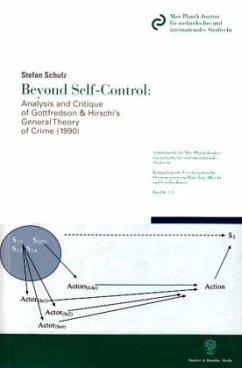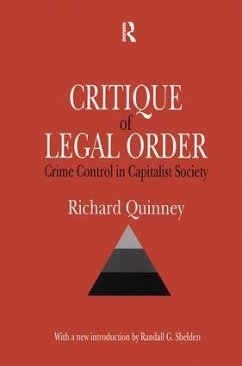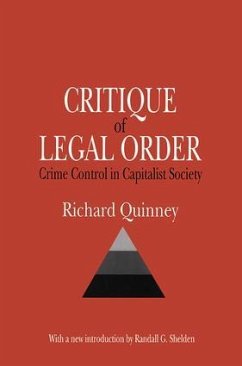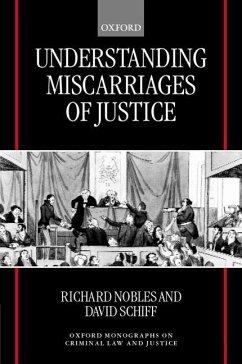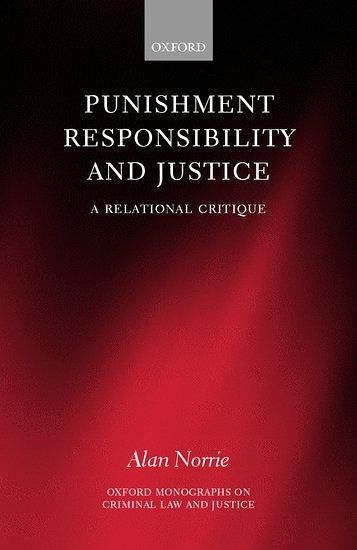
Punishment Responisbility and Justice (a Relational Critique)
Versandkostenfrei!
Versandfertig in 1-2 Wochen
199,99 €
inkl. MwSt.

PAYBACK Punkte
100 °P sammeln!
Punishment, Responsibility and Justice builds on Alan Norrie's previous work in the philosophy of punishment and criminal law to develop a challenging and ground-breaking critique of Kantian justice thinking. It casts a bold new light on recent debates about punishment and the criminal law in a period when traditional thinking has undergone opposition, crisis and change. The retributive and 'orthodox subjectivist' approaches, which have driven the textbook tradition and law reform for forty years, have been doubly challenged. A 'revisionist' critique opposes their Kantian insistence on formal ...
Punishment, Responsibility and Justice builds on Alan Norrie's previous work in the philosophy of punishment and criminal law to develop a challenging and ground-breaking critique of Kantian justice thinking. It casts a bold new light on recent debates about punishment and the criminal law in a period when traditional thinking has undergone opposition, crisis and change. The retributive and 'orthodox subjectivist' approaches, which have driven the textbook tradition and law reform for forty years, have been doubly challenged. A 'revisionist' critique opposes their Kantian insistence on formal individual autonomy from both a communitarian position on punishment and a 'morally substantive' view of responsibility. A 'postmodern' critique opposes orthodoxy for its failure to see how the Kantian subject is constructed in relations of power and domination. Against both orthodox subjectivist and revisionist views, Norrie develops a relational or dialectical critique to argue that they in fact both work in the same Kantian problematic. He establishes the concept of a 'blaming relation' as the basis for a critique of both, and to challenge the standard analytical account of criminal justice thinking. Moving from the legal theory of Ashworth, Duff, Fletcher, Moore, Smith and Williams to the jurisprudence of the courts, Norrie analyses the seemingly irresolvable problems of punishment, responsibility and justice in the criminal law from a relational point of view. Against the postmodern approach, he argues for the need to retain what remains of moral value in Kantianism by seeking 'a non-Kantian answer to the Kantian question' of individual justice. The result is a relational critique of punishment, responsibility and justice, which recognises the ambiguity and ambivalence that accompany judgment of wrongdoing, and which asserts both the real moral value and the fundamental limits of Kantian justice thinking.



